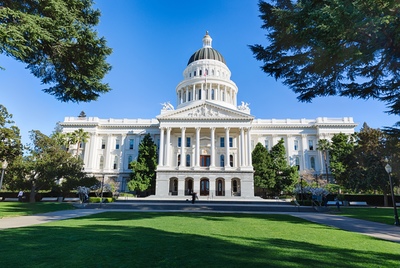
Compliance
How States Are Using AI for Compliance Enforcement in 2026
February 20, 2026 | Bradley Coffey

Key Takeaways:
The government affairs profession now operates in a hybrid environment. Part of the job requires visiting state capitols, attending hearings and other in-person meetings, but we also now rely heavily on emails, phone calls, and social media to make contact with state lawmakers.
As such, you should never take an “I’ll deal with it after” approach when it comes to contacting lawmakers — this can get you into trouble! As the map below indicates, 18 states require that a person register as a lobbyist prior to making lobbying contacts in that state. That means you need to complete the necessary paperwork and possibly complete any mandatory training before you send that email about an executive order or legislation important to your organization.
The remaining states have varying rules on what triggers registration, but you generally don’t need to register prior to making contacts. However, it’s important to do your homework before you make contacts — rules can be detailed and confusing. In many of these states, there is a threshold to be considered before one qualifies as a lobbyist (e.g., time spent, expenditures, or a combination thereof).
For example, in California, an in-house lobbyist isn’t required to register until they spend more than one-third of their time lobbying in a calendar month. In Texas, there are compensation and expenditure thresholds to be considered. In Kentucky, there is technically no threshold to hit, but you have seven days to register once you begin to lobby the legislative branch.
Learn more about how MultiState can help you streamline your compliance process.
Information provided in this article is not legal advice and is not a substitute for legal advice and counsel directed at your specific situation.

February 20, 2026 | Bradley Coffey
-328a36-400px.jpg)
February 20, 2026 | Kelly Cox
-8748f6-400px.jpg)
February 19, 2026 | Izzy Aaron